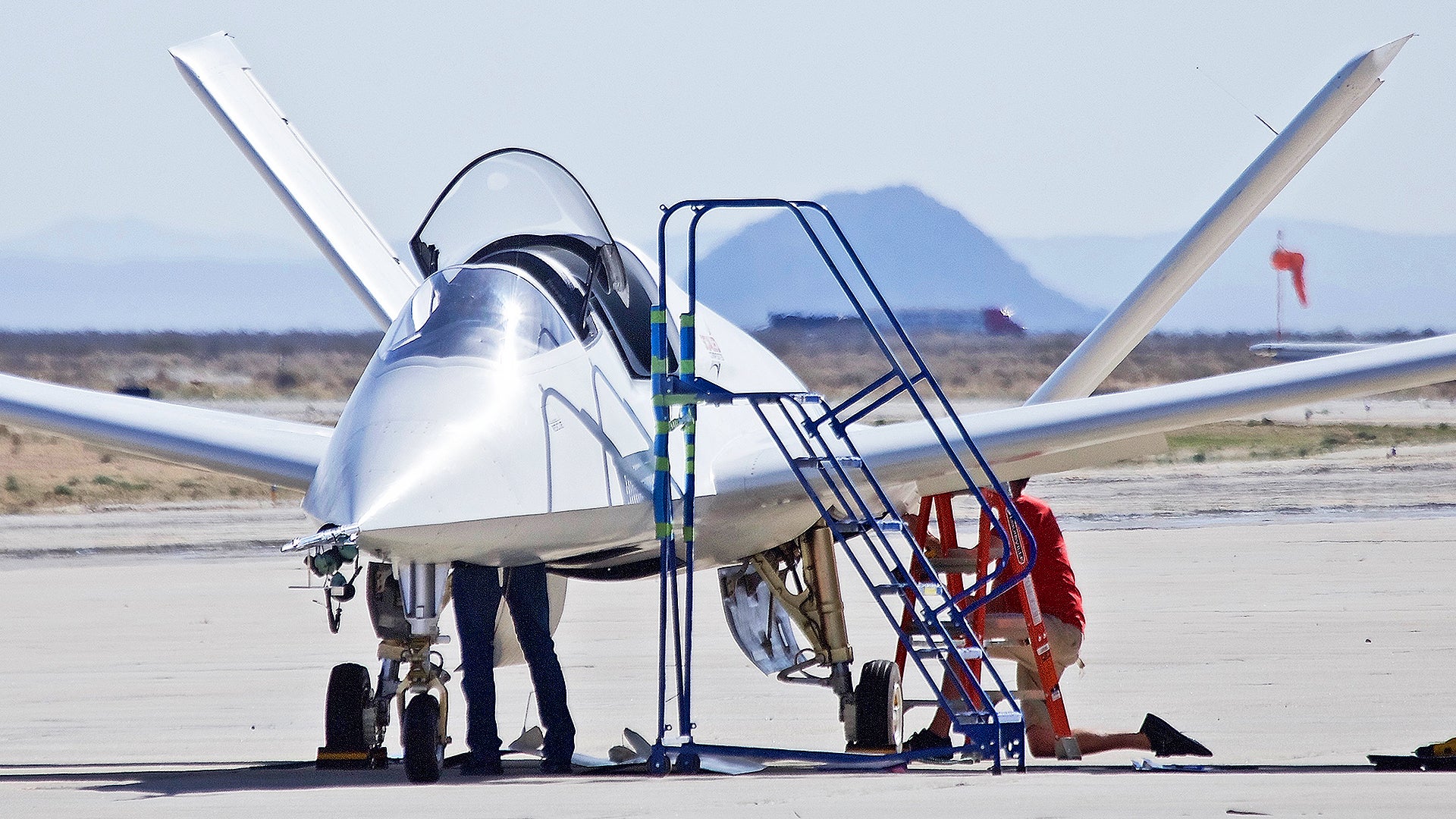Since Scaled Composites first unveiled their exotic Model 401 experimental aircraft last October the jet has been spending substantial time in the sky. Yet still, few photos of it publically exist. Now, with exclusive new images obtained by The War Zone, we not only get a unique view of this mysterious flying machine, but we also discover some of its special features. But what’s most exciting is the images unmask the program’s cryptic nickname and hint at what its mission might be.
The photos were taken at Mojave Air And Space Port by one of the family here at The War Zone, Matt Hartman, an avid Southern California aerospace photographer, and proprietor of Shorealonefilms.com.
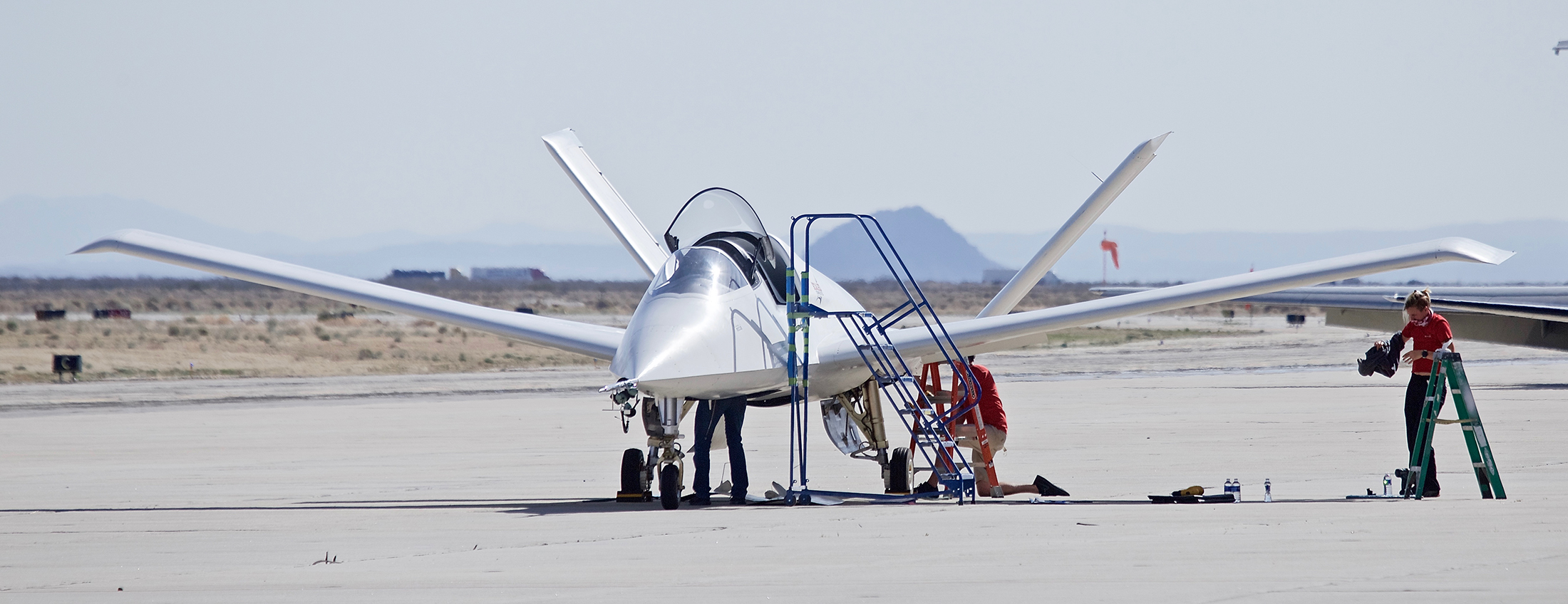
After closely examining the photos it seems we were lucky enough to have stumbled on what appears to be an insightful set of clues as to what this flying machine is meant to do and its in-house nickname and lore.

One of the people that were in close proximity to the jet as it received service on the apron had a shirt on with a huge crest stating ‘Son of Ares’ on top and ‘Phobos Deimos’ on the bottom. At its center is a Spartan warrior’s helmet with what appears to be the letters phi and delta from the Greek alphabet on either side of that helmet.
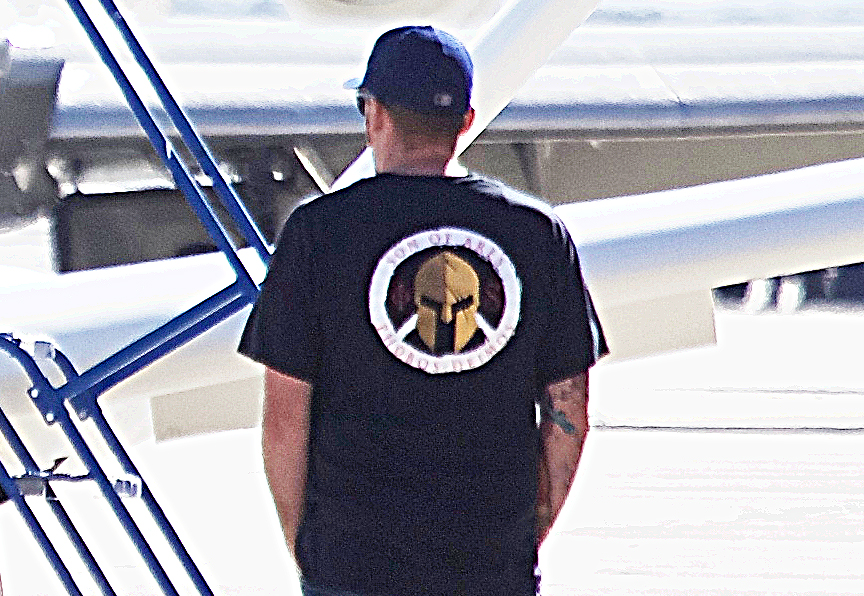
Son Of Ares is a clear callback to the company’s small close air support combat aircraft concept that was designed in the 1980s and first took to the skies in 1990. Named ARES for Agile Responsive Effective Support, this aircraft emerged out of a study by two Army aviators dubbed the Low Cost Battlefield Attack Aircraft (LCBAA). Legendary aircraft designer and founder of Scaled Composites Burt Rutan joined the study to come up with an airframe design that could plug what was perceived as a gap in the Pentagon’s close air support portfolio.
The DoD said they would evaluate the aircraft if Rutan built it, so he did. The result was a bizarre but amazingly innovative little flying machine. In essence, it was a little flying gun, packing a GAU-12 25mm cannon on one side and a semi-recessed air inlet on the other in an ingenious arrangement. It was also envisioned that the ARES could carry other armaments, like rockets and small guided munitions.
The ARES platform was classic Rutan, with twin tail booms, canard foreplanes, and elegantly sculpted lines. A JT15D-5 turbofan—a derivative of which also powers the Model 401—provided enough thrust to spirit the small carbon-fiber jet up to a speed of 400 knots.

The aircraft was never considered for production but it supposedly performed very well in testing and evaluations. In 1992, it even starring in the cheesy air combat flick Iron Eagle III as the ‘Messerschmitt Me 263.’
By around the end of the millennium, the plane was put into storage. It remained there until it was resurrected in 2008 to work as a flying testbed. Since then the pint-sized jet has been quite active and it has been spotted with extreme modifications that point to possible surrogate work for systems destined for stealthy unmanned aircraft.
ARES, now approaching 30 years old, was most recently seen at the LA County Air Show in Lancaster, California late last month.
Here’s a great photo walk around of the jet as it is configured now.
So clearly this program has legendary status within Scaled Composites rich history and lore. The Model 401, with its stealthy design traits and small tactical jet overall concept, likely evolved from a similar spirit as ARES, and its intended applications are clearly battlefield related. But instead of packing a big cannon, it could very well aim to test directed energy weapons or advanced sensors that could enjoy synergistic effects by being mounted on a medium altitude, medium endurance low observable platform.
The names Phobos and Deimos are extremely important too. Theos.com’s description of their place in Greek mythology reads as such:
DEIMOS and PHOBOS were the gods or personified spirits (daimones) of fear. Deimos represented terror and dread, while his brother Phobos was panic, flight and rout. They were sons of the war-god Ares who accompanied their father into battle, driving his chariot and spreading fear in his wake. As sons of Aphrodite, goddess of love, the twins also represented fear of loss.
This all makes more sense considering there are actually two Model 401s in existence. Their registrations: N401XD (Deimos) and N401XP (Phobos). The warlike and downright scary nature of their names also alludes to the probability that they are designed for intensive military applications.
You have to hand it to Scaled Composites for coming up with such a rich and well-tailored mythological metaphor for the Model 401 program—a program of which we still don’t know if there is an external benefactor or customer. Making things even more interesting, as we have posited before, one of these aircraft, X4014D, may be an unmanned variant, hence the P for piloted and D for drone in the registrations and in reference to their newly discovered nicknames.
We previously wrote about this possibility, stating:
“The theory is highly speculative but maybe there is something to it. Having one aircraft be manned and a near identical copy be unmanned, with a fairing replacing the canopy and covering the cockpit, and avionics and a satellite communications systems taking the cockpit’s place, would allow for manned and unmanned tests of equipment on a common platform.
Once again, such a concept would also allow for these tests to occur over areas that currently do not allow unpiloted aircraft operations. This would not only be advantageous for getting new systems fielded faster but it would also provide a control variable for testing manned versus unmanned capabilities against each other.”
It’s also possible that an unmanned and manned pair could work to develop cooperative ‘manned-unmanned teaming’ and ‘loyal-wingman’ operational concepts and the hardware and software that goes along with it.
Scaled Composites has only said the two aircraft are similar in mold-line, and won’t comment any further than that which has added to the mystery.
Moving on from the newly discovered ‘Son of Ares’ moniker, the photos also offer the first views of large bays located below the aircraft that are easily accessed by ground personnel. These will likely carry advanced sensors and other systems in the aircraft’s future. As mentioned earlier, they may even be fitted with a directed energy weapon system considering the aircraft’s supposed lineage and name.
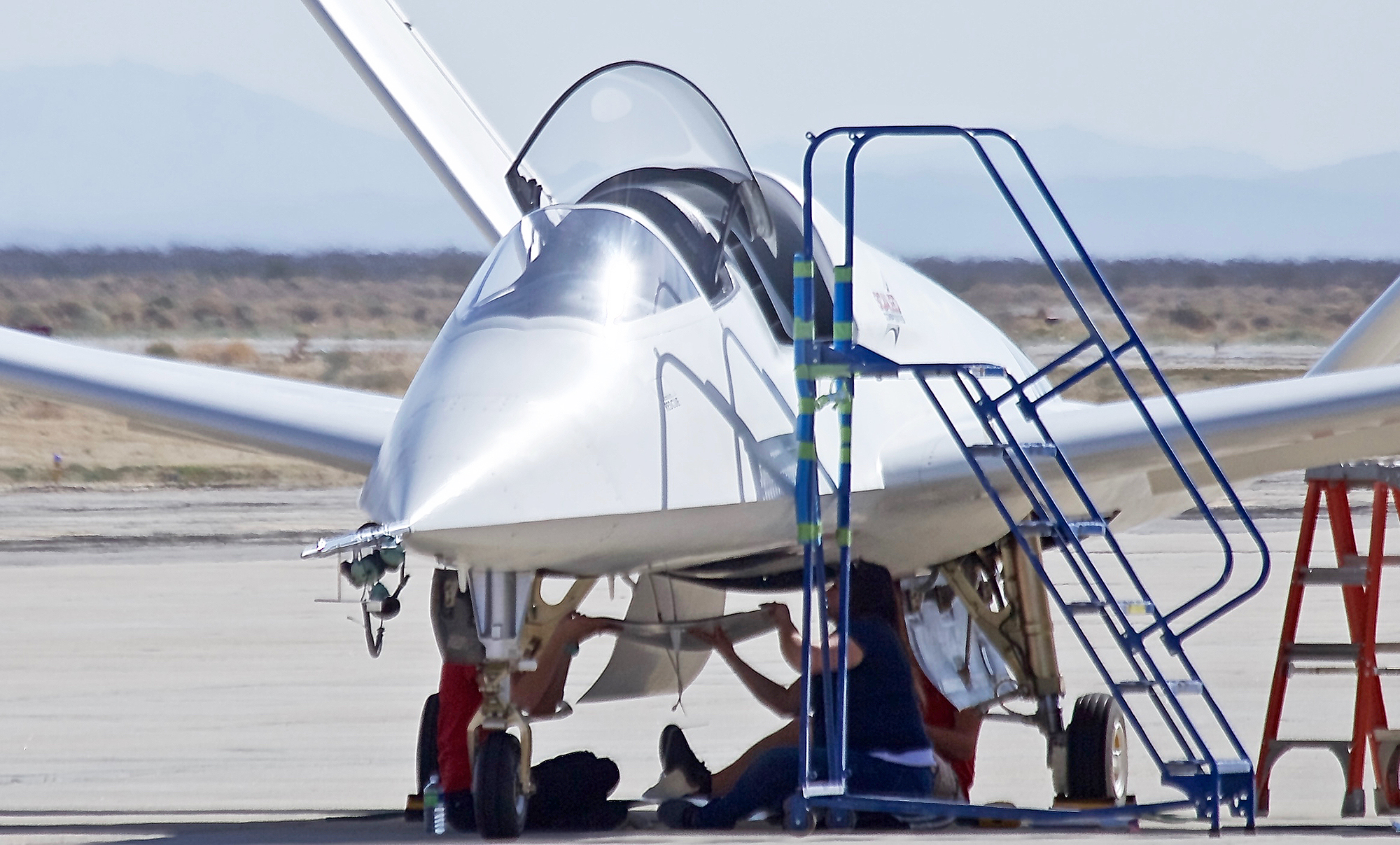
The aircraft looks so much like a mix between Boeing’s Quiet Bird—and somewhat like its Bird of Prey demonstrator that was flown three and a half decades later—and General Atomics Avenger. In fact, the Model 401’s wings appear to be nearly a dead ringer to those found on the Avenger.
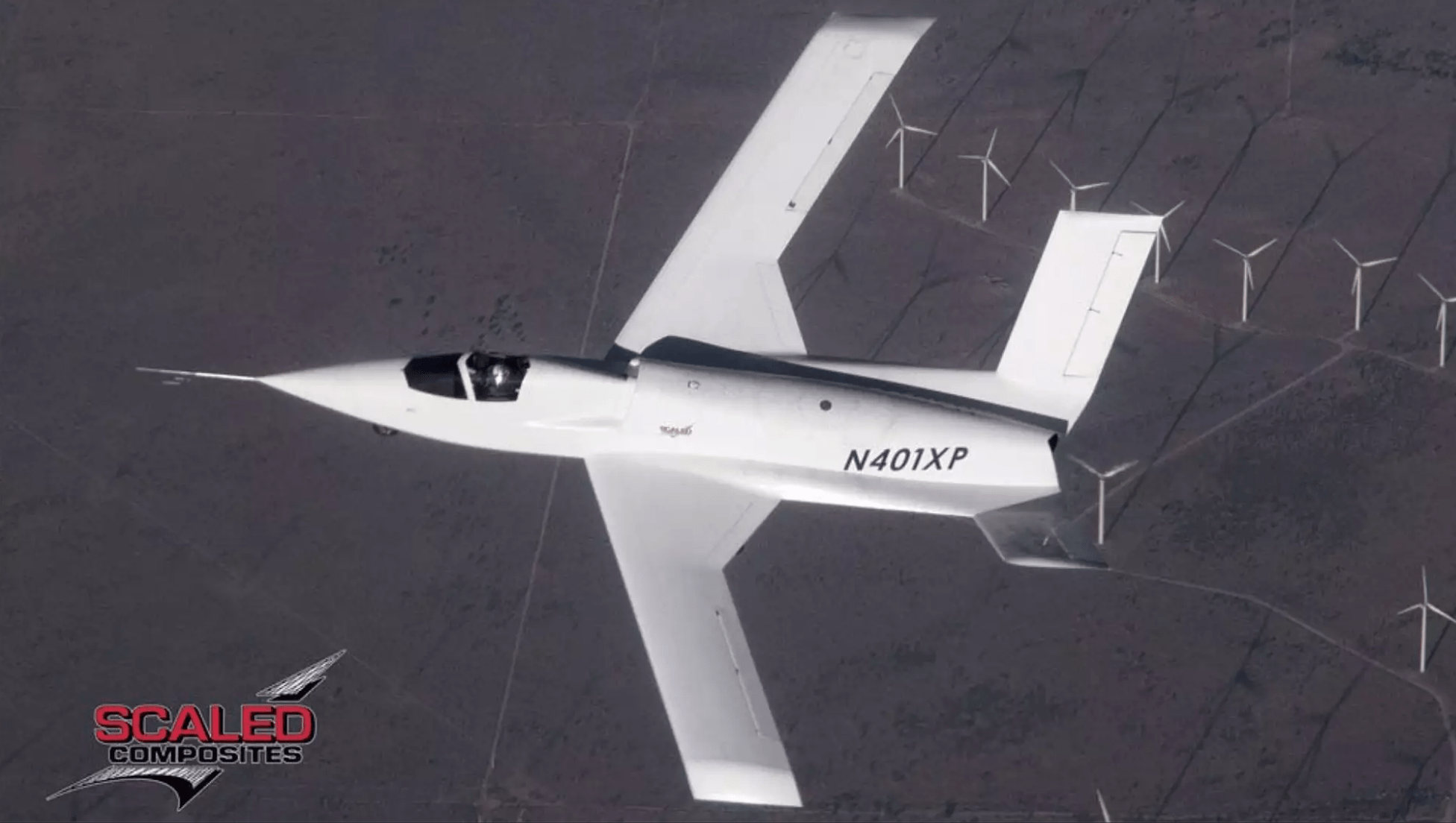
These likenesses have led us to wonder if either General Atomics or Boeing has something to do with the program. Also made more evident in these images are the Model 401’s wing’s extreme dihedral. It remains unclear what benefit this offers the design.
Even with this new information, and beyond basic performance estimates and specifications, we still don’t know all that much about this aircraft or its supposed twin. But at least we now have a good probability of understanding its lineage and lore within the company.
If you have any more information about the Model 401 send us a note, we would love to hear from you.
Contact the author: Tyler@thedrive.com
